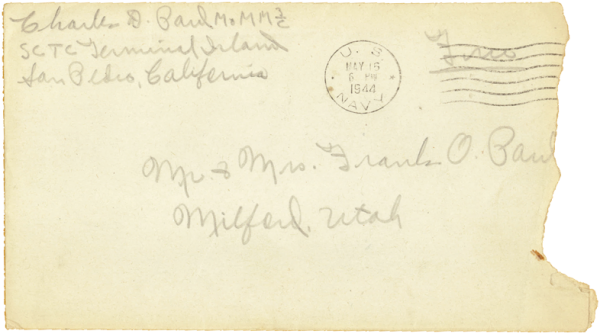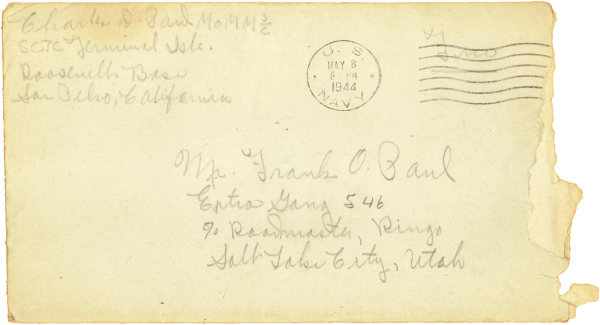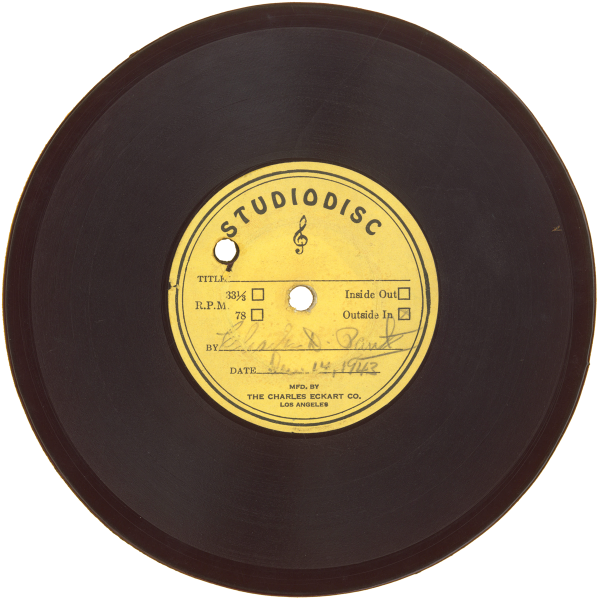In this letter, Chuck mentions bartering with the “boatswain”. A boatswain is an occupational ranking for a member of a boat’s crew who trains, directs and supervises personnel in charge of ship maintenance duties—a manager of sorts, who acts as a middleman between the authority and the crew.
He also talks about a Kay Kyser broadcast he was excited to hear. Kay Kyser (James Kern “Kay” Kyser) was a popular radio personality during WWII. As part of his segment, he was a big band and swing vocalist and bandleader. His bands were in several era films. Chuck’s favorite music was big band and swing, for which he played percussion up until his passing. It isn’t surprising that this surfaces in his letters.
An interesting note is that the recipient address on this envelope is merely a city and state. At the time, Milford must have been a pretty small town. Or, Frank was a well-known city figure. Or, both. I’m not sure if letters would have been delivered to mailboxes, or picked up from a postal office. I grew up in Valdez, Alaska and the postal office was somewhat of a cultural epicenter just like the grocery store. Every day, everyone would stop at the post office to get their mail. I can see how it would be easy enough for a postal office to not need mailbox numbers in a small enough town.
Chuck also talks about a bowling alley. It sounds as though he purchased or acquired it himself somehow, then invested money into it. I don’t remember him ever talking about a bowling alley with me, so I’ll have to ask my father about it. Perhaps there is more to that story.

Letter home, envelope; May 16, 1944

